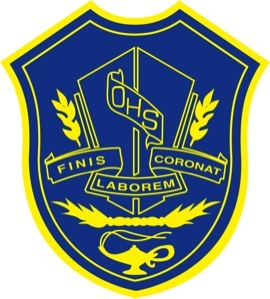
Saint John is a seaport city located on the Bay of Fundy in the province of New Brunswick, Canada. It is Canada's oldest incorporated city, established by royal charter on May 18, 1785, during the reign of George III. The port is Canada's third-largest by tonnage with a cargo base that includes dry and liquid bulk, break bulk, containers, and cruise. The city has a strong industrial base, including oil refining and manufacturing, matched with finance and tourism sectors and research institutions such as the New Brunswick Museum and the University of New Brunswick. Saint John was the most populous in New Brunswick until the 2016 census, when it was overtaken by Moncton. It is currently the second-largest city in the province, with a population of 69,895 over an area of 315.59 km2 (121.85 sq mi).

The New Brunswick Liberal Association, more popularly known as the New Brunswick Liberal Party or Liberal Party of New Brunswick, is one of the two major provincial political parties in New Brunswick, Canada. The party descended from both the Confederation Party and the Anti-Confederation Party whose members split into left-wing and right-wing groups following the creation of Canada as a nation in 1867. It is the current governing party in the province, led by premier Susan Holt.

The Liquor Control Board of Ontario (LCBO) is a Crown agency that retails and distributes alcoholic beverages throughout the Canadian province of Ontario. It is accountable to the Legislative Assembly through the minister of finance. It was established in 1927 by the government of Premier George Howard Ferguson to sell liquor, wine, and beer. Such sales were banned outright in 1916 as part of prohibition in Canada. The creation of the LCBO marked an easing of the province's temperance regime. By September 2017, the LCBO was operating 651 liquor stores.

Bath is a former village on the Saint John River in Carleton County, New Brunswick, Canada. It held village status prior to 2023 and is now part of the town of Carleton North.

The Alberta Gaming, Liquor and Cannabis Commission (AGLC) is an agency of the government of the Canadian province of Alberta, and regulates alcoholic beverages, recreational cannabis, and gaming-related activities. References to cannabis were added to AGLC's name and governing legislation as cannabis in Canada moved towards legalization in 2018. AGLC was created in 1996 as the Alberta Gaming and Liquor Commission by combining the responsibilities and operations of the Alberta Liquor Control Board (ALCB), Alberta Lotteries, the Alberta Gaming Commission, Alberta Lotteries and Gaming and the Gaming Control Branch. The current chief executive officer as of 2020 is Kandice Machado.

The New Brunswick Liquor Corporation, operating as Alcool NB Liquor (ANBL), is the provincial Crown corporation of the Canadian province of New Brunswick responsible for the purchase, importation, distribution and retail activity for all alcoholic beverages in the province. It serves the public and licensees through 40 corporate retail outlets, 90 private agency store outlets, 91 local producer agency stores, and 67 grocery stores selling wine, cider and beer, as of July 2, 2023. Its subsidiary Cannabis NB is also responsible for all retail sales of recreational cannabis in the province.

Higher education in New Brunswick refers to education provided by higher education institutions in the Canadian province of New Brunswick. Higher education has a rich history in New Brunswick. The first English-language university in Canada was the University of New Brunswick. Mount Allison University was the first in the British Empire to award a baccalaureate to a woman, Grace Annie Lockhart, B.Sc. in 1875. Education is the responsibility of the provinces in Canada and there is no federal ministry governing it.

The Department of Post-Secondary Education, Training and Labour is a department in the Government of New Brunswick responsible for "ensuring the New Brunswick workforce is competitive by making strategic investments in people through innovative programs, services and partnerships." The Department oversees the province's public universities and colleges, the provincial student loan system, public libraries, labour, adult learning and literacy, as well as immigration. There are a number of Acts under the Department's legislative purview, including New Brunswick's Employment Standards Act, Workers' Compensation Act and Human Rights Act. Several arms-length agencies and Crown corporations report to the Legislative Assembly of New Brunswick through the Minister responsible for the Department, such as the Labour and Employment Board, the Human Rights Commission, WorkSafeNB and New Brunswick's community colleges.

Oromocto High School (OHS) is a high school located in Oromocto, New Brunswick, Canada. It is the third largest school in the Anglophone West School District (ASD-W) which contains 70 institutions and around 23 000 students total. OHS is the source of education for about 1032 of those students, with between 1000 and 1100 annually. Oromocto High School is also the location for the Oromocto Education Centre which looks over different schools within ASD-W within Oromocto and the surrounding area. The principal is Kevin Inch, vice-principals are Maxine McConnell, Molly Nugent, and a third to be determined for the 2022-23 school year.

Blaine Myron Higgs is a Canadian politician who served as the 34th premier of New Brunswick from 2018 to 2024 and leader of the New Brunswick Progressive Conservative Party from 2016 to 2024.

Brian Alexander Gallant is a Canadian retired politician who served as the 33rd premier of New Brunswick from October 7, 2014, until November 9, 2018. Of Acadian and Dutch descent, Gallant practised as a lawyer before winning the Liberal leadership in October 2012, securing the riding of Kent in a by-election on April 15, 2013, shortly followed by his swearing in as Leader of the Opposition. After the 2014 election, in which the Progressive Conservative government of David Alward was defeated, Gallant was sworn in as Premier at the age of 32.

A cannabis retail outlet is a location at which cannabis is sold or otherwise dispensed, either for recreational or for medical use.
The Cannabis Act is a law which legalized recreational cannabis use in Canada in combination with its companion legislation Bill C-46, An Act to Amend the Criminal Code. The law is a milestone in the legal history of cannabis in Canada, alongside the 1923 prohibition.

Cannabis in Alberta became legalized on October 17, 2018 following the coming into force of federal Bill C-45. Production, distribution and consumption of cannabis had been prohibited in Canada since 1923. While some other provinces distribute cannabis through publicly owned retail monopolies, Alberta allows private companies to sell cannabis at licensed retail storefronts and online. Private retailers must purchase cannabis from the provincial wholesaler, the AGLC. Originally, the Alberta government was the sole entity permitted to retail cannabis online within the province but as of March 8, 2022, private retailers are permitted to do so and the province has since exited the retail business.

Cannabis in New Brunswick became legal for recreational use when the Cannabis Act went into force across the country on October 17, 2018.

On October 17, 2018, cannabis was legalized in Canada for recreational and medical purposes. It was already legal for medicinal purposes, under conditions outlined in the Marihuana for Medical Purposes Regulations issued by Health Canada, and for seed, grain, and fibre production under licence by Health Canada.

Non-medical cannabis in Manitoba became legal when the national Cannabis Act went into force on October 17, 2018.

Cannabis in Newfoundland and Labrador became legal when the national Cannabis Act went into force on October 17, 2018.
Cannabis in Yukon became legal when the national Cannabis Act went into force on October 17, 2018.

The Ontario Cannabis Retail Corporation, operating as Ontario Cannabis Store (OCS), is a Crown corporation that manages a legal monopoly over the online retail and wholesale distribution of recreational cannabis to consumers and privately operated brick and mortar retailers respectively throughout Ontario, Canada.















